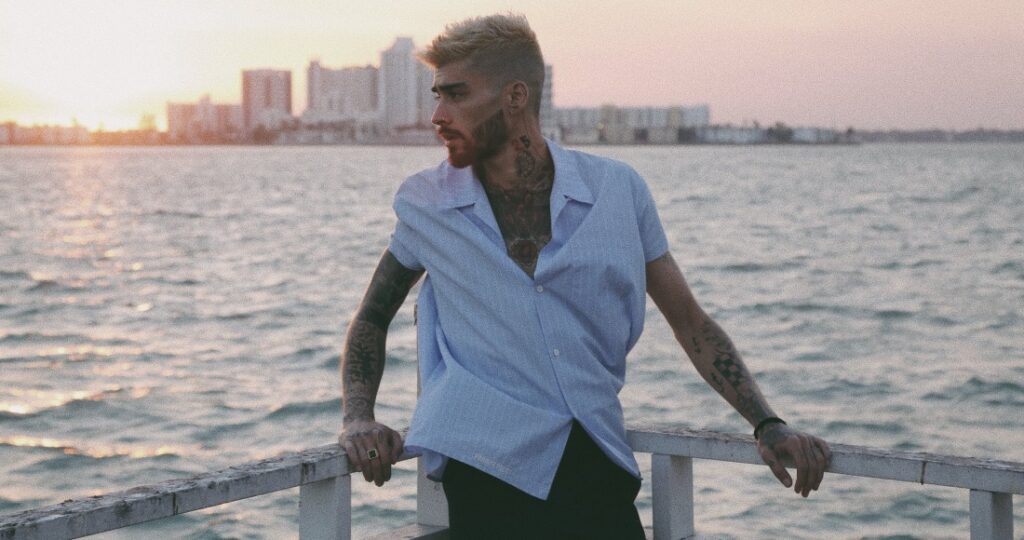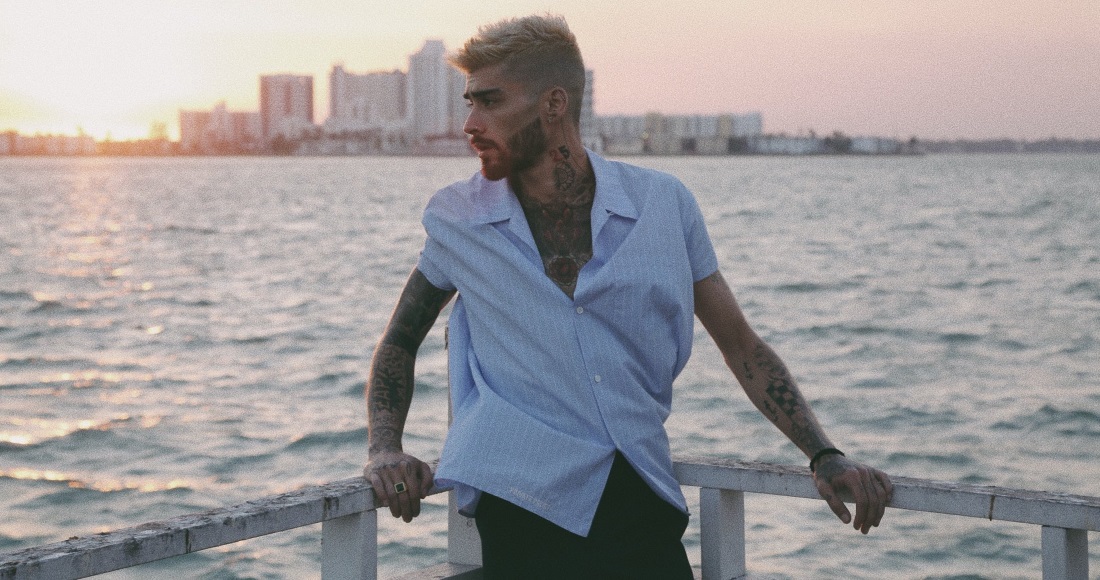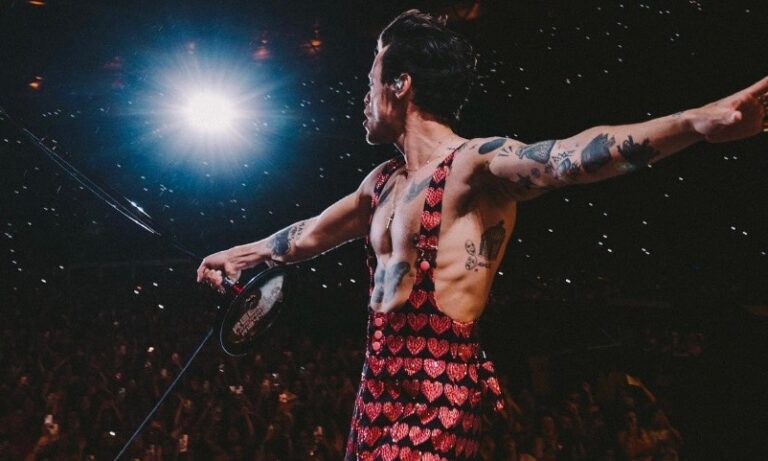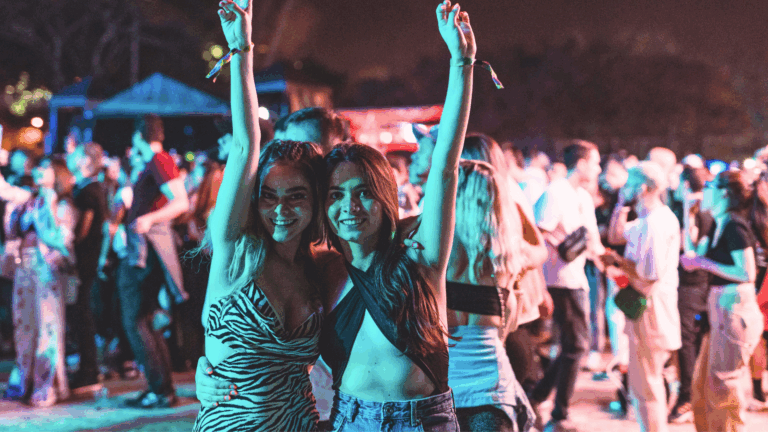How Zayn Defined The British-Asian Fangirl Experience

The year is 2010. You’re sitting cross-legged on your living room floor, eyes fixated on the television. The X Factor’s bootcamp stage is coming to a close. Five badly dressed teenagers are standing before the judges, and you can’t quite believe your eyes.
They’re about to put a brown person in a boyband.
From the inception of One Direction, Zayn Malik has assumed the unofficial role of British-Asian-in-chief – a title belonging to Britain’s most notable celebrity of South-Asian descent. In theory, Zayn was the perfect candidate for furthering British South Asian representation: ridiculous good looks, unmatched vocal ability, and a mainstream debut with what can only be described as the biggest boyband of our generation.
And the perfect candidate he was. Girls irrespective of ethnic heritage all over the UK – and then all over the world – fell for the star, in more ways than one. He was an unintentional figurehead for British Asian fangirls, giving us a means of participating in an established entertainment culture that was otherwise saturated with whiteness.
In practice, however, Zayn’s excellence during those One Direction years was clouded by the social intolerance that was so common during the early 2010s. Be it open, unapologetic racism, or discrete, unconscious prejudice, Zayn never did receive his flowers in the way he should have.
In 2012, 12-year-old me was lucky enough to see One Direction live at Birmingham’s then-LG Arena. As a ‘Zayn girl’, I knew I was in for a treat. The ad-libs from More Than This, LIVE?! Someone pinch me. As I’m chatting to the girls in the queue, explaining my love – no, my ADORATION – for Zayn, I hear someone laugh.
“Of course you’re a Zayn girl!”
She was talking to me, but I wasn’t sure why. I must’ve had a face of bewilderment because the justification followed.
“I mean, you’re both Asian. It’s nice!”
And I tried to agree. It is nice, I suppose. This is what representation is all about, right? Seeing people like me centre stage, and identifying with them on the grounds of visibility. So why do I suddenly feel like I’m being perceived as a brown person at a One Direction concert, as opposed to just… a person?
“Don’t be offended!” the girl continued, “Someone has to like Zayn.”
It wasn’t until I grew older, and built a refined understanding of what it means to be intersectional, that I realised how deeply problematic this perspective truly was. To some white fans, Zayn was the ‘other’ – and so was I. No matter how talented he was, or how many high notes he hit, he would never be the favourite. And, as a South Asian fangirl, I was relegated to being his keeper, ordered to stay in my lane and avoid disturbing the real fangirl experience.
The ‘Bradford Bad-Boy’ – Problematic Fandom Perceptions
Looking back on the earliest days of One Direction with a refined understanding of what it meant to be inclusive and oppressive, it’s relatively clear why the typical Directioner held questionable views towards the only person of colour in the group. The public image of each member was somewhat predetermined, by both the marketing giant that was The X Factor and the general British population. Niall was the cute, Irish sweetheart; Louis was the fun-loving prankster; Harry was the charming lead, and Liam was the dad of the group.
And Zayn? Zayn was the bad boy. The ‘jock’. The troublemaker. He had tattoos, smoked cigarettes, and wore the occasional leather jacket (horrifying, I know.)
As a young fan in 2010, I didn’t exactly question these identities at first. The watered-down Spice Girls-esque personalities made it easier to get to know the group and to immerse myself in the mania that followed One Direction. Over time – hours of video diaries, interviews, and ‘funny moments’ YouTube compilations later – I began to question the image that had been curated for Zayn. This was the ‘Bradford Bad Boy’? He seemed quiet, sure, but nothing else really indicated a rebellious streak.
My discomfort found an answer as the years went on. It became apparent that my fellow fangirls viewed Zayn as inherently ‘different’ to the other boys. He was half-Pakistani with a ‘Muslim-sounding’ name, sporting a tan to his skin complemented with dark hair and eyes. In comparison to the other four members, it was easy to consider Zayn as a foreign object in a band that was ultimately built around the so-called ‘British charm’. In this regard, ‘bad boy’ was a synonym for ‘someone who goes against the grain’ – the grain being whiteness.
This was a surprisingly popular narrative the fangirl circle ran with, so much so that Zayn’s departure from the band in 2015 was characterised as disobedience.
Tackling Racism in the Mainstream
This predetermined image within the Directioner community was, I’d later find, the least of my concerns. As One Direction’s fame grew, so did the target on Zayn’s back in the mainstream media. His race continued to be a defining factor of his social identity beyond the fan circles I was part of, and the ugly head of racist Britain reared its head once he became a household name.
Incidents of blatant racism against the artist on international stages were common – 2017 saw the ‘parody’ artist Uma Kompton release a conspicuously racist track entitled ‘Zayn did 9/11’. Only the year prior, Azealia Banks described Zayn as a ‘pet’ and a ‘token’, suggesting he was only selected as a member of One Direction to ‘draw brown attention.’
Racism was endemic, and the perpetrators were unapologetic. The abuse was perceived as something a person of colour in the public eye would have to accept as a given consequence of stardom. This was a deeply unfortunate, yet frustratingly common pattern for pioneers from ethnic minority backgrounds; the 2010s invited Zayn into the white-dominated space that is the British music industry but couldn’t afford him protection from the violence that was imminent.
Brown Excellency versus White Mediocracy
Within the One Direction fandom, however, a more nuanced issue began to surface – underappreciation. Music is, of course, subjective; though it isn’t exactly controversial to declare Zayn’s vocals among the best within One Direction. His solo record sales seemed to reflect this in the earliest days of his solo career. Zayn’s debut record ‘Pillowtalk’ topped the Billboard Hot 100 chart, and the following album Mind of Mine was acclaimed as a graduation from One Direction’s pop-rock sound.
Despite this, Zayn never became the heartthrob he was arguably destined to be. His sophomore album, Icarus Falls, didn’t see the same commercial success as its predecessor, and Zayn subsequently fell from the prevailing spotlight. Maybe this was a consequence of his lack of personal promotion and touring, and the artist’s desire to live privately. But, as Zayn himself has previously claimed, it could also be down to an unconscious bias amongst entertainment big-whigs. It was just under two years ago that Zayn accused the Grammys of ‘allowing favouritism, racism, and networking politics’ to determine the nominations – The Weeknd tweeted an identical opinion only months prior.
This bias isn’t necessarily something that cannot be objectively proven, but it is certainly something that contemporary society is familiar with and has grappled with rectifying over the last decade. Testimonies from prominent Black British artists such as fellow X Factor stars Alexandra Burke and Leigh-Anne Pinnock describe a discrete prejudice that exists within the music industry, which acts as a detriment to people of colour. Rapper Tinie Tempah also expressed similar grievances towards the ‘complexities’ of marketing an artist, suggesting people of colour (specifically Black artists), are more likely to receive less financial backing than their white counterparts.
It begs several questions – as the only prominent South Asian artist of the period, was Zayn’s solo career somewhat sabotaged as an inadvertent result of white supremacy? Beyond budget issues and marketing endeavours, would his talent have been held in higher regard? Would he have shaken the image as a reserved, trouble-making bad boy from the get-go?
Reflections
On a personal level, being a South Asian Directioner taught me a lot of things about identity politics and tribalism I genuinely don’t think I would’ve been exposed to at such a young age otherwise. In my early pre-teen years, I was too young to understand racism in the nuanced context of ‘othering’ and underappreciation – I was simply frustrated that my fellow fangirls didn’t appreciate Zayn in the same way I did.
But, as a now-22-year-old with a short lifetime of lived experience as ‘the brown girl’ in white-dominated spaces, a new perspective on the era has been unlocked. It was in these fangirl circles I was first introduced to the dubious concept of ‘us’ versus ‘them’, and began to understand what it meant to be an anti-racist in an activist sense, defending Zayn against a barrage of bigotry within my own friendship circles.
But, of course, It would be a disservice to label Zayn as nothing more than a victim; he has achieved so much in the face of adversity. As a member of One Direction, he sold over 65,000,000 records worldwide, not to mention almost 2,000,000 solo records in addition. Since leaving the group in 2015, he has been nominated for 53 awards and has been recognised for his outstanding commitment to furthering Asian representation in white-dominated spaces.
For those South Asian fangirls who admired him so much, Zayn is a pioneer. His exceptionalism as an artist and individual has paved the way for a new generation of people of colour exploring their place in entertainment circles – be it as artists, producers, or consumers. His very presence carved out a vacancy for us in a space we have historically been unwelcome in.
For that, we’ll always be thankful.







